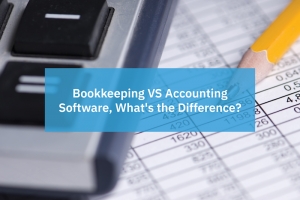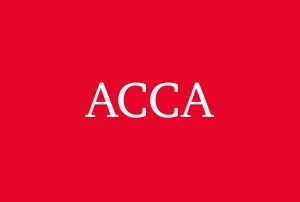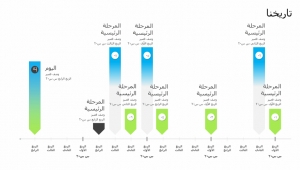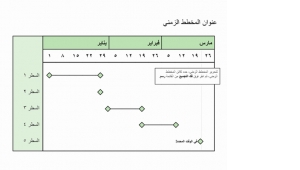عرض العناصر حسب علامة : الإدارة المالية
رسالة ماجستير: العلاقة بين ممارسات المسئولية الاجتماعية والتجنب الضريبي من منظور خصائص الشركات وأثرها على القيمة السوقية لحقوق الملكية
يهدف البحث إلى بيان تأثير کلاً من الخصائص المالية وغير المالية للشرکات على طبيعة العلاقة بين ممارسات المسؤولية الاجتماعية والتجنب الضريبى مقاساً بالفروق الدفترية الضريبية
معلومات إضافية
- البلد مصر
ما الفرق بين برمجيات مسك الدفاتر وبرمجيات المحاسبة
دعنا نتعمق في الاختلافات بين مسك الدفاتر وبرمجيات المحاسبة لفحص ما تحتاجه حقًا لأفضل إدارة مالية. في كثير من الأحيان، يتم استخدام مصطلحات مسك الدفاتر والمحاسبة بالتبادل. لكن هذه مفاهيم مختلفة، تنعكس بوضوح في التكنولوجيا الحديثة.
معلومات إضافية
-
المحتوى بالإنجليزية
Bookkeeping vs Accounting
When you compare bookkeeping vs accounting, they both involve managing financial transactions and accounts. The difference lies in the scale and depth of these processes.
Bookkeeping is simply the recording and monitoring of financial transactions. These include sales transactions, purchases, receipts, and payments made by the company.
Accounting is more complex. Accounting refers to the documentation, interpretation, analysis, classification, and summarization of financial data.
So, while the two are related, they address two different aspects of financial management. Primarily, bookkeeping logs financial information and may involve rolling up the details, while accounting tracks the financial data, manages it, and then uses the data to enhance business. However, this divide has shifted substantially thanks to how they’re used in IT software. To learn more about accounting definitions and terms, check out our accounting vocabulary page.
Bookkeeping Software vs Accounting Software, What’s the Difference?
Bookkeeping software concentrates on the basic components of financial management. You’ll use a bookkeeping system like QuickBooks to document your finances and pay bills. But that’s mostly it. Bookkeeping software focuses on data entry and storage. This is what you use to log your revenue and pay expenses.
Accounting software performs all the functions of bookkeeping in addition to more analytical and actionable accounting functions like cash flow analysis and forecasting. Besides logging and processing debits and credits, accounting systems consolidate key data needed for more proactive financial strategies. What gives accounting software an edge is its proactive use of data.
What’s the Role of Data in a Business’ Financial Health?
One defining feature of both modern accounting and IT technology is data. The use of data even dictates the roles of both bookkeepers and accountants.
Bookkeepers don’t necessarily need an accounting degree or a financial background like an accountant or CPA. They just know proper financial data entry in order to record the transactions properly. This is more of a clerical role, which is still important because accuracy is critical for accounting and finances. However, bookkeeping ends at recording and updating information. This is where the accountant takes over.
Accountants can do bookkeeping work as well, but they are primarily an advisor. Today, the accountant is the curator of your financial data. Accountants take the financial transactions, account information, and other related financial data, and analyze how these details indicate business performance. They then use this financial data to help businesses make the best decisions for success. Accounting software helps accountants do this by capturing and presenting data in a way that helps identify trends and make accurate projections.
[So] Which is the Best Accounting Technology?
It’s pretty obvious that accounting software is better than bookkeeping software. Accounting software is designed to let you do more and visualize your financial health more clearly. You simply get more for what you pay for. Therefore, you should be looking to use or upgrade to a dedicated accounting app, right? Not necessarily.
Accounting applications, while more useful than bookkeeping software, still have several limitations. They can be rigid in how you use, assess, and process financial data or manage transactions. You’ll get the best value and use out of an accounting platform like Accounting Seed than you would a typical accounting app.
Bookkeeping and Accounting: Accounting Platforms
Essentially, an accounting platform combines the goals and functions of bookkeeping and accounting software, but that’s not all. This is because IT platforms are designed for individual organizations to build on top of them. Accounting and bookkeeping applications can be restrictive. They’re not very flexible in how users can work with their own requirements. This isn’t the case with accounting platforms.
Accounting platforms bring a full complement of financial features, the functionality to be adjusted, and an increased emphasis on data control. In summary, the choice is simple. Companies don’t need to choose between bookkeeping or accounting because accounting platforms bring a full-scale accounting solution that will continue to adapt to their needs.
رسالة ماجستير: أثر المسئولية البيئية على الأداء المالي : دراسة ميدانية على بعض المصانع السعودية في المنطقة الشرقية وينبع الصناعية
تهدف الدراسة إلى اختبار مدى إلتزام الإدارة العليا في مصانع المملکة العربية السعودية بمسئولياتها البيئية ومدى تطبيقها لنظام الإدارة البيئية.
معلومات إضافية
- البلد السعودية
رسالة ماجستير: قياس تأثير القدرة الإدارية للمديرين التنفيذيين على نغمة الإفصاح المحاسبي وسياسة التوزيعات النقدية
تمثَّل هدف القضية البحثية المطروحة من قبل الدراسة الحالية، فى قياس تأثير درجة القدرة الإدارية للمديرين التنفيذيين وفقاً لمؤشر القدرة الإدارية الذى قدمته دراسة (Demerjian, et al., 2012)، على کلٍ من مستوى نغمة الإفصاح المحاسبى بالتقارير المالية (والمعبر عنه بثلاث مقاييس وصفية مختلفة
إعادة التفكير في الإدارة المالية العامة
يجب على الحكومات أن تستثمر في أنظمة إدارة الشؤون المالية العامة الخاصة بها الآن حتى تكون مرنة بما يكفي للتعامل مع الأزمات في المستقبل.
معلومات إضافية
-
المحتوى بالإنجليزية
How should governments evolve their PFM systems to be better prepared for future crises?
Public financial management (PFM) is the way governments manage public resources, including collecting revenue and controlling expenditure, and the impact such resources have on the economy and society. How good a government is at PFM made a real difference to citizens and businesses during the Covid-19 pandemic. Quite literally, it could be the difference between living and dying, survival or bankruptcy.
We used a global survey of 1,500 respondents, discussions with 45 practitioners, and desk research to answer two research questions:
How well have governments responded to the pandemic?
What are the future challenges for PFM arrangements?
Our report, Rethinking Public Financial Management (PDF, 3.8 MB), captures and discusses answers to these questions. There are noticeable differences between regions and there are some areas of concern, such as whether there is sufficient transparency and accountability about the extra money spent to tackle the pandemic. (The IMF reported global spending of $16 trillion in the year to April 2021, which is more than the annual gross domestic product of China.)
The report has 21 actionable recommendations. The key recommendation is governments must invest in their PFM systems now so that they are flexible and resilient enough to deal with crises in the future.
Whether and when crises arise in the future, improving PFM will help governments in the delivery of all their services and achieving the UN's Sustainable Development Goals.
رسالة ماجستير: تفعيل استخدام تكنولوجيا المعلومات في الفحص الضريبي للحد من الفجوة الضريبية
هدفت الدراسة تفعيل استخدام تکنولوجيا المعلومات في الفحص الضريبي للمسجلين بالضريبة على القيمة المضافة VAT على الضريبة المستحقة والفجوة الضريبية
رسالة ماجستير: قياس تأثير توقعات الإدارة على السلوك غير المتماثل للتكلفة بهدف زيادة جودة المحتوى المعلوماتي لنظام المحاسبة الإدارية
استهدفت الدراسة: قياس تأثير التوقعات الإدارية في ضوء - درجة استغلال الموارد المتاحة وتکاليف التعديل – علي درجة السلوک غير المتماثل للتکلفة في بيئة الأعمال المصرية، بهدف زيادة جودة المحتوي المعلوماتي لمخرجات المحاسبة الإدارية.










